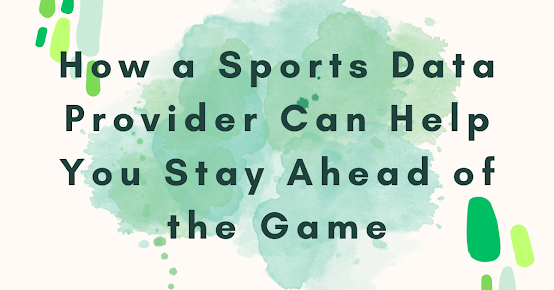How a Sports Data Provider Can Help You Stay Ahead of the Game
How a Sports Data Provider Can Help You Stay Ahead of the Game
Introduction to Sports Data Provider
Sports data provider collect, process, and distribute data related to sports. This data can include everything from game statistics to player information. The goal is to provide accurate and timely information to their clients, which includes sports leagues, teams, and even fans.
The use of sports data has become increasingly important in the industry. With the rise of analytics in sports, teams, and leagues are using data to gain a competitive edge. From player scouting to game strategy, data is being used to inform decision-making at all levels of the game.
The Role of Sports Data in the Industry
Sports data is also being used to improve fan engagement. With the rise of social media, fans are now able to access more information about their favorite teams and players than ever before. Sports data providers are helping to fuel this trend by providing fans with real-time updates and insights into the game.
How Sports Data Providers Collect and Analyze Data
Sports data providers use a variety of methods to collect and analyze data. One of the most common methods is through the use of sports data feed. A sports data feed is a real-time stream of data that is collected from various sources, including stadiums, broadcasters, and other data providers.
Once the data is collected, it is processed and analyzed using various algorithms and statistical models. This allows sports data providers to identify patterns and trends in the data, which can be used to gain insights into how the game is played.
Advantages of Using a Sports Data Provider
Another advantage of using a sports data provider is the ability to improve fan engagement. By providing fans with real-time updates and insights into the game, sports data providers are helping to create a more immersive fan experience.
Choosing the Right Sports Data Provider for Your Business
One of the most important factors to consider is the quality of the data. You want to make sure that the data you're receiving is accurate and up-to-date. It's also important to consider the reliability of the provider. You want to make sure that the provider is able to deliver the data you need in a timely and consistent manner.
Finally, it's important to consider the cost of the service. While you don't want to skimp on quality, you also don't want to overspend on a service that you don't need. Be sure to shop around and compare prices to find a provider that fits your budget.




Comments
Post a Comment